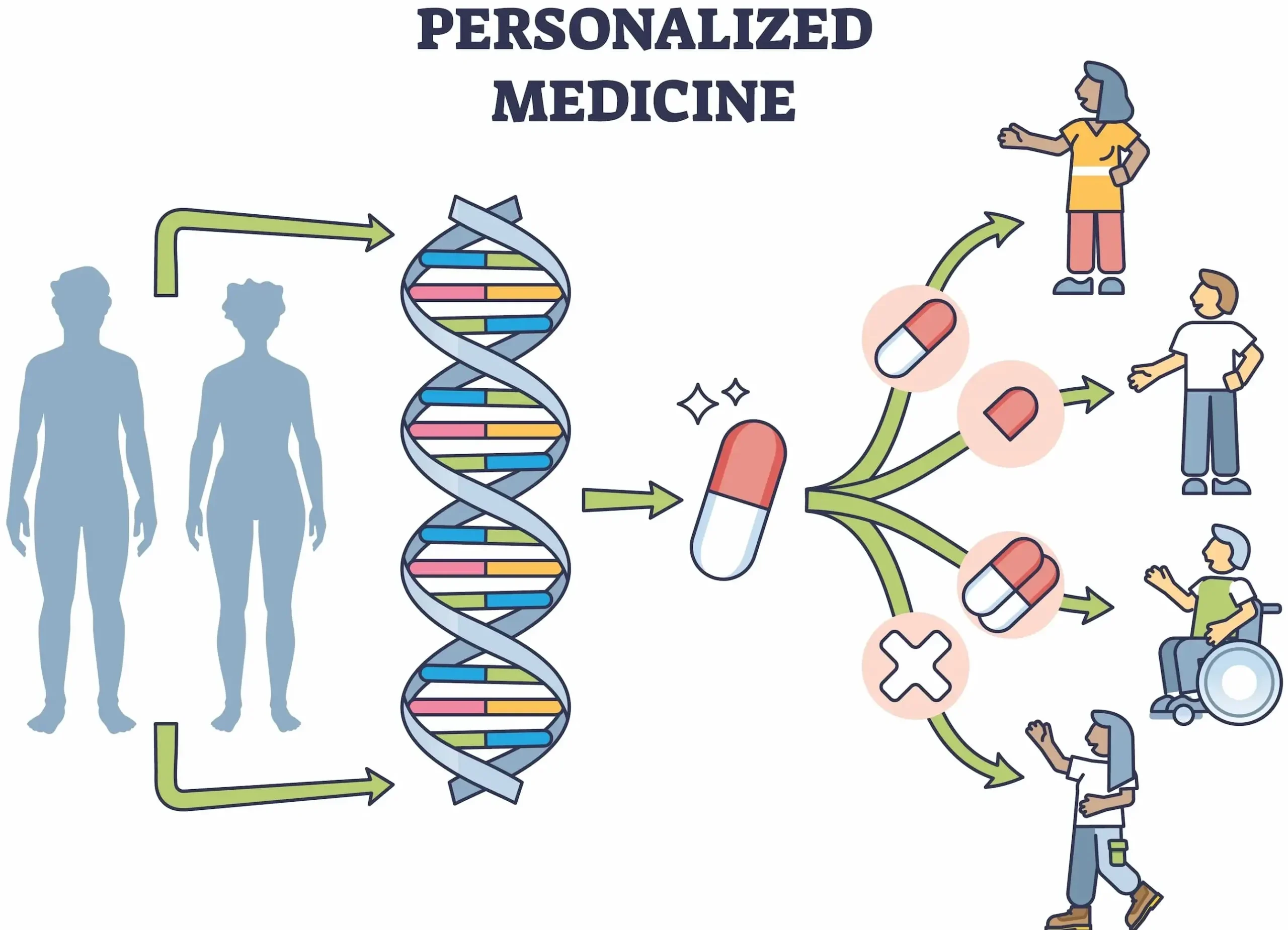Envision a reality where your clinical treatment is customized explicitly to your extraordinary hereditary cosmetics and way of life. This isn’t sci-fi; it’s the truth of customized medication. Customized medication, otherwise called accuracy medication, is a progressive way to deal with medical services that modifies clinical therapy to individual qualities, taking into consideration more successful and designated treatments.

Figuring out the Foundations
At the core of customized medication lies genomics, the investigation of a singular’s qualities and their connections with one another and the climate. Progress in genomics has made ready for customized medicines by uncovering the hereditary premise of different illnesses. Past genomics, customized medication integrates other “-omics” teachings like proteomics, metabolomics, and microbiomics. By investigating proteins, metabolites, and microbiomes, medical care suppliers gain an extensive comprehension of every patient’s novel natural profile.
Enabling Patient Engagement
Customized medication enables patients to play a functioning job in their medical care venture by giving them definite data about their hereditary inclinations, therapy choices, and expected results. Outfitted with this information, people can settle on additional educated choices in a joint effort with their medical care suppliers. Past hereditary variables, customized medication considers ecological and way of life impacts on wellbeing. By examining information on diet, work out, and other way of life factors, medical care experts can propose customized suggestions to assist patients with streamlining their prosperity and forestall infection.
Changing Conclusion and Treatment
One of the main advantages of customized medication is the capacity to distinguish infections at their earliest stages, frequently before side effects manifest. Through hereditary testing and biomarker examination, medical care experts can distinguish people at high gamble for specific circumstances and intercede proactively. Customary one-size-fits-all medicines may before long turn into a relic of past times, because of designated treatments customized to individual patients. By recognizing explicit hereditary transformations or biomarkers related with a sickness, doctors can endorse prescriptions that unequivocally focus on the fundamental reason, limiting incidental effects and expanding viability.
Looking Ahead
Man-made consciousness (computer based intelligence) and AI hold gigantic commitment in progressing customized medication by examining tremendous datasets and revealing complex examples. These innovations can possibly alter infection analysis, treatment determination, and patient results. Joint effort among specialists, medical services suppliers, policymakers, and industry partners is critical for the progression of customized medication. By sharing information, assets, and skill, we can beat difficulties and open the maximum capacity of this extraordinary way to deal with medical care.
Conclusion
From its unassuming starting points to its present status of quick development, customized medication addresses a change in outlook in medical services conveyance. By saddling the force of genomics, omics advances, and patient commitment, we are introducing another time of custom fitted medicines and further developed results. As we explore the moral, administrative, and monetary difficulties ahead, let us stay immovable in our obligation to understanding the maximum capacity of customized medication to help all.

